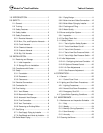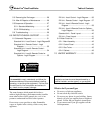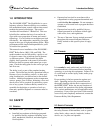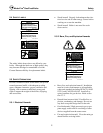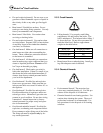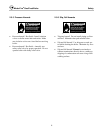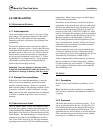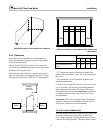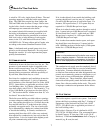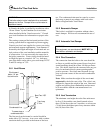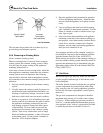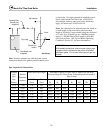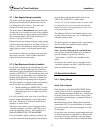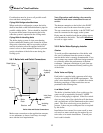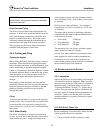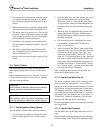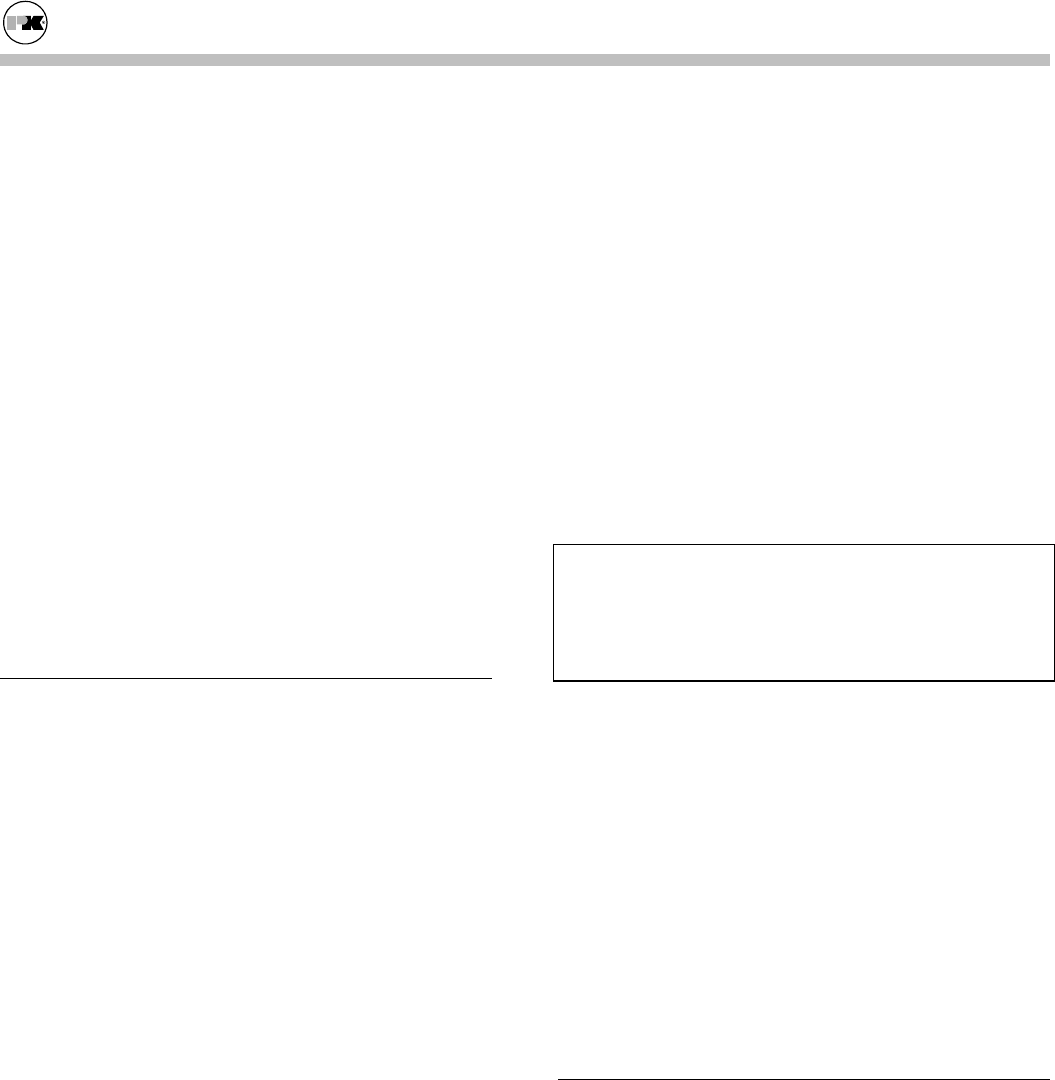
Modu-Fire
®
Gas-Fired Boiler Installation
7
is wired for 120 volts, single phase, 60 hertz. The total
operating amperage is indicated on the rating name-
plate. The 1000 series require less than 9 amps; the
1500 and 2000 series less than 12 amps. Before start-
ing the boiler, check to ensure that the proper voltage
and amperage are connected to the boiler.
An external electrical disconnect (not supplied with
the boiler) with adequate overload protection is re-
quired. The boiler must be grounded in accordance
with local codes or in the absence of such require-
ments, in the U.S. with National Electrical Codes,
ANSI/NFPA No. 70 latest edition and in Canada, wire
according to the current Canadian Electrical Code.
Note: A dedicated earth ground (green wire) is re-
quired to avoid nuisance shutdowns. Do not ground
through the conduit. It is also important that proper
polarity be maintained.
3.5
COMBUSTION AIR
Combustion air must be free from dust, lint, etc. The
presence of such materials in the air supplied to the
burner could cause nuisance "Low Air" shutdowns or
premature burner failure. The boiler should not be
operated during construction while the possibility of
drywall dust, demolition dust, etc. exists.
Provisions for combustion and ventilation air must be
in accordance with Section 5.3, Air for Combustion
and Ventilation, of the National Fuel Gas Code, ANSI
Z223.1, latest edition, or applicable provisions of the
local building codes. In Canada, combustion air open-
ings shall comply with CSA 4.9. The formula is "1 sq.
in. per 1,000 Btu/hr of gas input not less than 100 sq.
in." The location shall be "neither more than 18," nor
less than 6" above the floor level."
The boiler room shall be provided with two openings
to ensure adequate combustion air and proper ventila-
tion. One opening should be 6 to 12 inches above the
floor and the other 6 to 12 inches below the ceiling,
preferably on opposite walls. The size of each open-
ing is determined by whether air is taken from inside
or outside the building. In Canada, ventilation air
openings shall be at least 10% of the cross sectional
area required for combustion air, but not less than 10
square inches. It is to be located at the highest practi-
cal point communicating with outdoors.
If air is taken directly from outside the building, each
opening should have a net free area of 1 square inch
for each 4,000 Btu per hour of total boiler input. For
instance, 300 square inches (2-1/12 square feet) are
required for 1,200,000 Btu per hour input.
When air is taken from the outdoors through a vertical
duct, 1 square inch per 4,000 Btu per hour is required.
If a horizontal duct is used, 1 square inch per 2,000
Btu per hour is required, i.e., 600 square inches for
1,200,000 Btu per hour input.
If air is taken from another interior space, each open-
ing should have a net free area of 1 square inch for
each 1,000 Btu per hour of boiler input (1,200 square
inches for a 1,200,000 Btu per hour.)
WARNING!
Under no circumstances shall the boiler room ever be
under a negative pressure. Particular care should be
taken when exhaust fans, compressors, air-handling
units or other equipment may rob air from the boiler.
The combustion air supply must be completely free of
chemical fumes which may be corrosive when burned
in the boiler. Common chemicals which must be
avoided are fluorocarbons and other halogenated com-
pounds, most commonly present as refrigerants or sol-
vents, such as freon, trichlorethylene, perchlorethyl-
ene, chlorine, etc. These chemicals, when burned,
form acids which quickly attack the boiler tubes, tube
sheets, flue collectors and the boiler stack. The result
is improper combustion and premature boiler failure.
3.6 FLUE VENTING
This boiler requires a special vent system. Vent instal-
lations shall be in accordance with Part 7, Venting of
Equipment, of the National Fuel Gas Code, ANSI
Z223.1, CSA B149 code or applicable provisions of
the local building codes.
This boiler is Category II as it is defined in ANSI
Z21.13/CSA 4.9 latest edition. The vent material must
be listed Category II Vent pipe (316L or AL-29 4C
Stainless). Under no circumstances shall a Category I
material (e.g. B-vent) be used.



